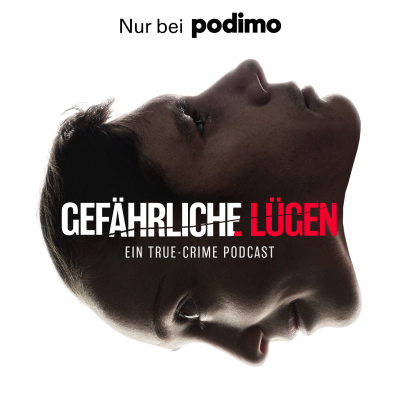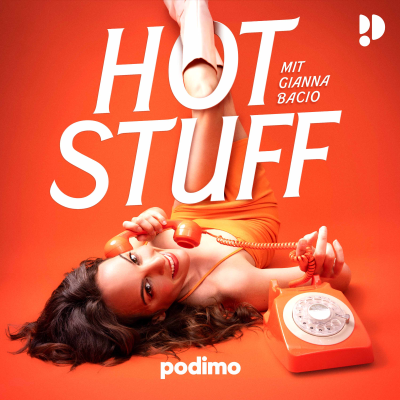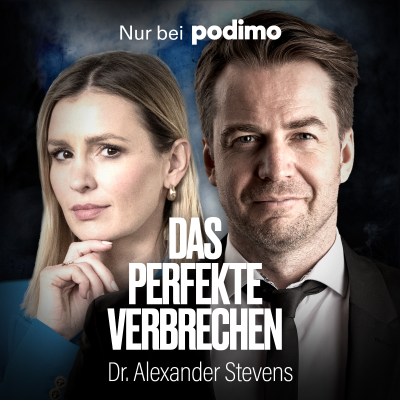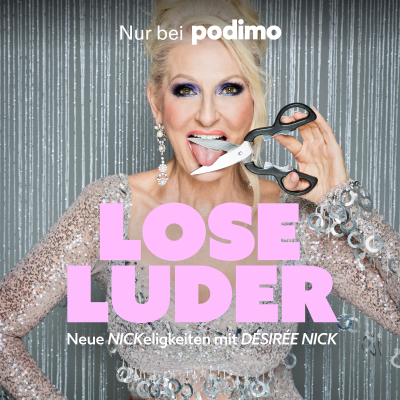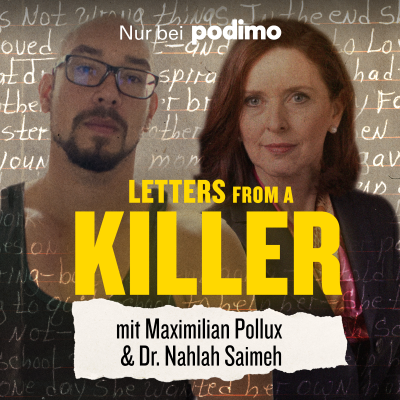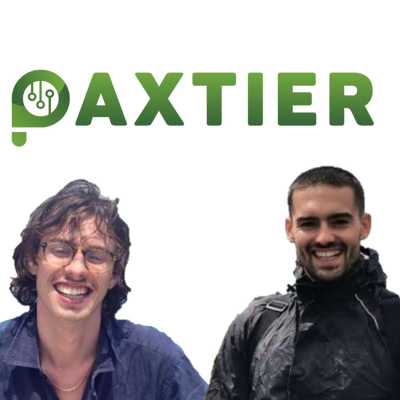
The Paxtier Podcast
Englisch
Gratis en Podimo
Kostenlos hören bei Podimo
Starte jetzt und verbinde dich mit deinen Lieblingspodcaster*innen
- Vertraut von über 1 Mio. deutschen Hörer*innen
- Über 1.000 lokale Podcasts und Shows – nur bei Podimo
- Keine Zahlung nötig
Mehr The Paxtier Podcast
Peter and Enrico Green explore algae, ocean and climate business ideas & opportunities. Sometimes they bring on guests to deep-dive with them.
Alle Folgen
12 FolgenExploring Seaweed's Role in Novel Food Products: Turtle Talks Ep. 5
Welcome to the final episode of our 5-part "Turtle Talks" series, developed in collaboration with The Seaweed Company (TSC)! In this episode, Peter sits down with John Murray (Bord Bia), and Lieneke Hohmann (TSC) to discuss the benefits and challenges of using seaweed in our food products. John Murray is the Director of Meat, Food & Beverage Sectors with Bord Bia – the Irish Food Board. He has responsibility to drive sector strategy deployment and deliver successful business growth supports and services. He joined from Kerry Group where he held senior roles in commercial sales and strategy development across Europe. Prior to this, John worked in specialist dairy commercial roles with Ornua in both the UK and Ireland. He also has experience in retail buying in the Irish market, working for the successful SuperQuinn franchise. John originally commenced his working career in Bord Bia, in the areas of research and trade marketing. He is a UCD Agricultural Science graduate, and hails from west Waterford originally. Lieneke Hohmann is Head of Commerce- Food at The Seaweed Company. She is an experienced leader with a proven track record in a wide range of functions including sales, innovation and strategy in companies including Nouryon and AkzoNobel. Lieneke has a passion for real products, smart solutions and nature and has been contributing to a more sustainable and healthy food system for years. In this episode, some highlights include: 0:01:40 - Introductions 0:04:55 - Do the consumers care about carbon? 0:08:12 - What pain points are you seeing in the seaweed for food market? 0:10:14- What matters most to the consumer...? 0:12:30 - Examples of comparable products that have entered food markets that seaweed can learn from. 0:16:10- Will seaweed burgers encourage people to eat more meat? 0:21:10 - Ireland's value proposition as an innovation hub for novel food products. 0:24:09 - What percentage does seaweed make up in the food products TSC makes?
Recommendations to support the EU seaweed and algae sector
Welcome to the fourth episode of our 5-part "Turtle Talks" series, developed in collaboration with The Seaweed Company (TSC)! In this episode, Peter sits down with Stefan Kraan (TSC), Felix Leinmann (DG Mare), and Vitor Verdelho (EABA) to explore the European perspective on seaweed, and algae farming and markets. Stefan Kraan is a science driven entrepreneur. Born in The Netherlands, he moved to Ireland to pursue a PhD on phylogenetics and aquaculture of edible seaweeds at the National University of Ireland, Galway in 1998. He became manager of the Irish Seaweed Industry Organisation in 1998 and finished his PhD in 2001. He established the Irish Seaweed Centre in 2001, a dedicated R&D centre for seaweed-based research and development, which was launched in 2001. Dr Kraan co-founded Ocean Harvest Technology Ltd, a company that has produced Oceanfeed™, a seaweed based functional feed ingredient for the fish farming industry and other aquaculture industries. He is currently CSO of The Seaweed Company. Dr Kraan’s main fields of expertise are aquaculture of seaweeds, sustainable development of algal resources, industrial applications of seaweeds and usage of seaweeds in aquaculture, biotechnology and biomedicine. Felix Leinemann is Head of Unit for Blue Economy Sectors, Aquaculture and Maritime Spatial Planning in the Directorate General for Maritime Affairs and Fisheries. He and his team promote a sustainable blue economy for the benefit of humankind and the oceans, and put forward the EU Algae Initiative in 2022. Felix has worked for the European Commission since 2003 on various policies including fisheries and maritime policy, shipping, aviation and urban transport, as well as the EU's global navigation satellite system Galileo. Born in Porto, Portugal, on March 9th, 1966, Vitor Verdelho holds a degree in Physics from the Sciences Faculty of Porto University. With over 25 years of experience in biotechnology projects, Vitor is a Co-Founder and shareholder of Necton, SA, a marine biotechnology company established in 1997. Necton's ventures encompass the commercial production of traditional sea salt and microalgae. In 2008, Vitor embarked on another entrepreneurial journey as a Co-Founder and shareholder of A4F – Algae for Future SA. Currently, he serves as the CEO and co-founder of Cell4Food, a pioneering company in the 'cultivated meat' segment of cellular agriculture since 2022. Throughout his career, he has actively participated in over 20 European and 40 National research projects across various frameworks and programs, collaborating with more than 100 partner organizations throughout Europe. He has held the role of General Manager of the European Algae Biomass Association since 2015, representing the Algae Biomass sector. Over the past three decades, he has honed a diverse set of teaching and management skills in various domains, directly mentoring over 200 start-ups across different frameworks. Furthermore, he is privileged to serve as a Visiting Professor at the Catolica Porto Business School and has contributed as a Co-Author to the trilogy of books titled "The Business Case Roadmap.” In this episode, some highlights include: 0:01:40 - Introductions 0:02:24 - Experiences working with algae and seaweed over the years? 0:04:40 - Updates on EU4Algae 0:10:30 - Creating standards for the algae sector... 0:13:00 - Working together to solve challenges like contamination. 0:14:00 - The seaweed potential in Europe and why Ireland is well-positioned? 0:15:00 - Perspectives on wind-farming meets seaweed farming. 0:16:00 - Hurdles for developing the European sector. 0:18:00 - Recommendations to stimulate the EU seaweed and microalgae sectors. 0:22:30 - How to raise ambition levels for governments in the EU? And how do we ensure they follow recommendations?
Scaling lessons and socioeconomic benefits from Irish seaweed farming
Welcome to the third episode of our 5-part "Turtle Talks" series, developed in collaboration with The Seaweed Company (TSC)! In this episode, Joost (TSC) and Peter sit down with TSC's Lorraine Gallagher and Máire Ní Einniú from Údarás na Gaeltachta to discuss seaweed farming scaling lessons from Mulroy Bay, socioeconomic benefits for remote coastal areas, and approaching social licensing. Lorraine Gallagher is the General Manager at The Seaweed Company’s Irish operation. She oversees a range of activities from seaweed farming to processing in the picturesque Mulroy Bay, Donegal. This bay is home to a thriving seaweed farm where edible Alaria esculenta is cultivated. The Seaweed Company supplies seaweed to the food industry. Its new factory, located close to the farm, processes 300 kilograms of seaweed per hour, converting it into dry flakes. With a background in human nutrition, Lorraine manages the Irish division, and was driven to set up the operation thanks to her interest in the potential health benefits of a seaweed-based diet. Recognising the potential of Ireland's coastline, and with a family background in aquaculture, she identified a significant opportunity in seaweed. Máire Ní Einniú is a Marine Development Executive with Údarás na Gaeltachta. Údarás na Gaeltachta stated purpose is to strengthen the Gaeltacht communities, to increase the quality of life of its community members and facilitate the preservation and extension of the Irish language as the principal language of the region. By profession a Chartered Accountant and Chartered Tax Consultant specialising in Natural Resource Development, Máire leads two of Údarás na Gaeltachta most strategic projects, Páirc na Mara, a state-of-the-art low-carbon marine innovation park in Cill Chiaráin, Co. Galway and Ros a Mhil- a Strategic hub for the offshore renewable energy sector. In her daily role, Máire supports high potential start-ups along with assisting SMEs with their growth plans. This includes extensive community engagement of marine related activities and believes through working collaboratively with industry and state agencies that the Irish marine sector can flourish. In this episode, some highlights include: 0:01:17 - Introductions 0:07:34 - Why Alaria? 0:08:27 - What impact can seaweed farming have for this part of Ireland?0:10:40 - How do you engage with the local community? 0:15:34 - Where should wild seaweed tie into this equation? 0:22:05 - How should we engage shellfish farmers and other fisherfolk to start farming seaweed? Hope you enjoy!
Where should governments invest in the seaweed sector?
If you're interested in state level aquaculture investment strategies --- this episode's for you... Joost Wouters (The Seaweed Company) and Peter sit down with Bord Iascaigh Mhara's (BIM) Joanne Gaffney and Ireland Strategic Investment Fund's Cathal Fitzgerald to discuss the nation's potential as a seaweed farming hub, how to approach collaboration, investment strategy and licensing bottlenecks. Joanne Gaffney is Aquaculture Technical Manager at BIM - a state agency that supports and develops the Irish seafood sector, providing technical expertise, business support, funding, and training. Joanne's remit includes the investigation and commercialisation of innovative solutions to industry challenge, novel technology transfer and the development of new cultivation techniques and species with a particular focus on the sector's response to climate and biodiversity challenges. She is an Irish industry expert on the complex process of environmental impact assessments (EIA), emerging marine policy and enhanced fishery certification. Cathal is Senior Investment Director - Food and Agriculture for the Ireland Strategic Investment Fund. The Ireland Strategic Investment Fund (ISIF), managed and controlled by the National Treasury Management Agency (NTMA), is a sovereign development fund with a unique mandate to invest on a commercial basis to support economic activity and employment in Ireland. Food and Agriculture is one of ISIF’s four priority Investment themes and it’s seeks to support the development of new sectors leveraging Ireland’s natural advantages and also support Irish companies scale and grow internationally. Cathal leads a team with responsibility for investments in the Food and Agriculture sector. He has experience in building growth platforms for food businesses in Ireland and across many international jurisdictions and has developed a number of award winning innovative funding structures for the Agriculture sector both in ISIF and former roles. In this episode, some highlights include: 0:02:00 - Introductions 0:04:57 - Why does seaweed make such an interesting investment opportunity? 0:07:13 - Why is Ireland uniquely positioned for being a production hub for seaweed? 0:10:53 - As an investor, where would you like to see more deployment of intellectual and financial capital? 0:15:30 - How should we approach collaboration in this sector and how would you build a strategy for this space in Ireland? 0:19:20 - Why isn't there more focus on improving the licensing process for aquaculture in Ireland? Who should lead the charge to improve that process? Hope you enjoy!
Turtle Talks with TSC #1 - Joost Wouters discusses signals, challenges, and Ireland's potential
Welcome to the first episode of our 5-part "Turtle Talks" series, developed in collaboration with The Seaweed Company (TSC). This series begins with a conversation with Joost Wouters, the CEO of this innovative enterprise dedicated to realizing the transformative impact of macroalgae worldwide. Recently, TSC opened a new processing facility in Donegal, Ireland, and we had a fantastic time celebrating their progress at Seaposium 2024 - an event seeking to explore Ireland's potential as a seaweed hub in Europe. Joost's career began at Procter & Gamble before he moved into the Management Team of Pepsi Cola Benelux. Following the birth of his first son, he founded a management consulting firm and worked with leadership teams at companies such as Danone, Unilever, Heineken, and Reckitt Benckiser across the globe. In 2005, Joost and his family spent a year traveling the USA in a motorhome before they moved to Spain, where they built a house and a leadership center on the Mediterranean. Ten years later, Joost returned to the Netherlands to focus on contributing to a livable future. TSC was formed and now farms seaweed globally to enhance the health and well-being of humans, animals, crops, and soils. In this episode, some highlights include: 0:02:00 - Why are you still passionate about seaweed after six years operating? 0:04:20 - Most encouraging signals in the space? 0:07:20 - Biggest challenges right now? 0:09:00 - How do you approach product development and marketing at TSC? 0:10:00 - How do you navigate relationships with the retailer? 0:14:20 - What are your thoughts on ecosystem services and proving out the benefits of seaweed farming more? 0:18:10 - How much of an issue is social licensing up here in Ireland?


